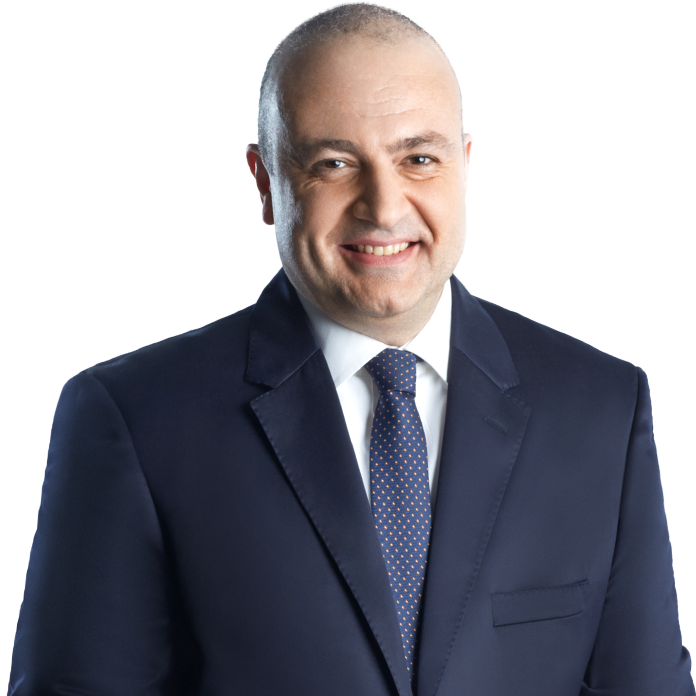Will the Ukraine war end anytime soon? While the answer to this question is currently in discussion, I had mentioned in a previous column that the West claims this “end” may not be Russia’s defeat as anticipated, and a “victory” for Ukraine does not seem possible. “Russia can no longer take all of Ukraine, and Kyiv and the West cannot drive Russia out of the lands it has taken.”
Thus, this seems to be the two countries’ search for a “tie.” However, in the final showdown, the geographical outcome is clear: Moscow has taken about one-fifth of Europe’s biggest country.
This is not any ordinary loss of territory. It suddenly joins Crimea, then the Caucasus and the Caspian, and adds the Black Sea as well. According to “genuine” international experts, this expresses the nearest “total” aimed at the “center” in the world’s classical power theory.
In brief, there is a before and after to the Sochi meeting between President Recep Tayyip Erdogan and his Russian counterpart Vladimir Putin.
***
President Erdogan says: “The world’s eyes today are on Sochi once again. They are following what was said and done in Sochi. What we will do following these meetings, the responses we give to these will guide them to a certain direction.”
Who are “they”?
The West, of course. If we further elaborate, the U.S.
The following statement came after the meeting: “There are world super powers that want to make joint investments with us in these fields [for UACVs and UAVs].”
Which world power?
Russia.
The two statements made before and after the meeting tell us that besides subjects like Syria, the grain matter, and trade relations, the two leaders discussed how they evaluate international developments.
This leads us to make “strategic” interpretations. It shows us that “the new world order and its prospective changes” was discussed without requiring a headline such as “What position is Russia and Türkiye taking – or what position must they take.”
Is there any other evidence from the summit to say, “yes, that is true”? Yes. We need to take heed of the ruble and swift. This signifies more than the use of an economic instrument at local measures. Surely a country that has been an ally of the West in every respect since the end of the 1940s saying, “Though I am committed to my promises, I will trade using the local currency of a country declared “enemy” by NATO,” regarding a matter such as dollarization, which is one of the U.S.’s primary methods of sanction/control/hegemony over the world calls for attention.
The likelihood of a UACV deal with Russia, while its S-400 experience is known to all – the fact that the discussion is still ongoing shows that national-foreign opponents are unable to digest a major Ankara achievement – shows us that broader maps were opened in Sochi.
In the final analysis, these are simply interpretations following a critical summit. After saying all this, if you ask the state if this is how they view the world, the highly likely answer will be, “we see no categorical pole reflexes.”
In other words?
“We neither directly blame nor support the U.S. for the events, we neither directly blame nor support Russia for the events."
You can consider this a confirmation.
Is this a pursuit of balance? Yes, but this was not always the case. Up until now, Türkiye’s foreign policy was attached to the U.S. Now that Türkiye is keeping a reasonable and equal distance to all sides, which is normal behavior, they perceive this as Türkiye’s attitude toward them.
***
One other outcome of the Sochi summit is Russia’s invitation to Türkiye to join the Shanghai Cooperation Organisation’s meeting in September.
This is an extraordinary invite because it is an important leg of the reasoning we made to this point. While it is clear that Ankara will attend the meeting (members are China, India, Russia, Pakistan, Kazakhstan, Kyrgyzstan, Tajikistan, and Uzbekistan. Three of these are superpowers, and four have nuclear weapons), the meeting is further expanded compared to the previous ones, including Iran: The United Arab Emirates (UAE), Belarus, Syria, Egypt, Qatar, Myanmar, Cambodia, Nepal, Azerbaijan, and Armenia.
Referring to this invite, President Erdogan said, “We think we should be with them too. For example, China is coming, on the other side, we have Saudi Arabia and Qatar coming. We aim to be there with them.”
We have more than one picture from the summit, but can we make out a single picture from all of them together rather than individual pictures?
The results from the Sochi summit show that the two countries and region’s problems were discussed. There is no question about that. However, the “big game/map/picture” shows Erdogan-Putin sitting at the “global chess table,” analyzing the moves.
This was not a simple meeting. The U.K.’s Financial Times published the day after the Sochi summit confirmed this.
“Western capitals increasingly alarmed over deepening economic cooperation between Erdogan and Putin, warn of retaliation if NATO-member Türkiye helps Russia evade sanctions. Top-level Western officials claimed they may call Western companies and banks to withdraw from Türkiye in the event Erdogan fulfills the promises he made on Friday.”
Of course, something like this is impossible, both technically and politically. Hence, the U.S. Department of State announced no such thing is in question. The news report is completely blown up and provocative.
But the fear is real!




















